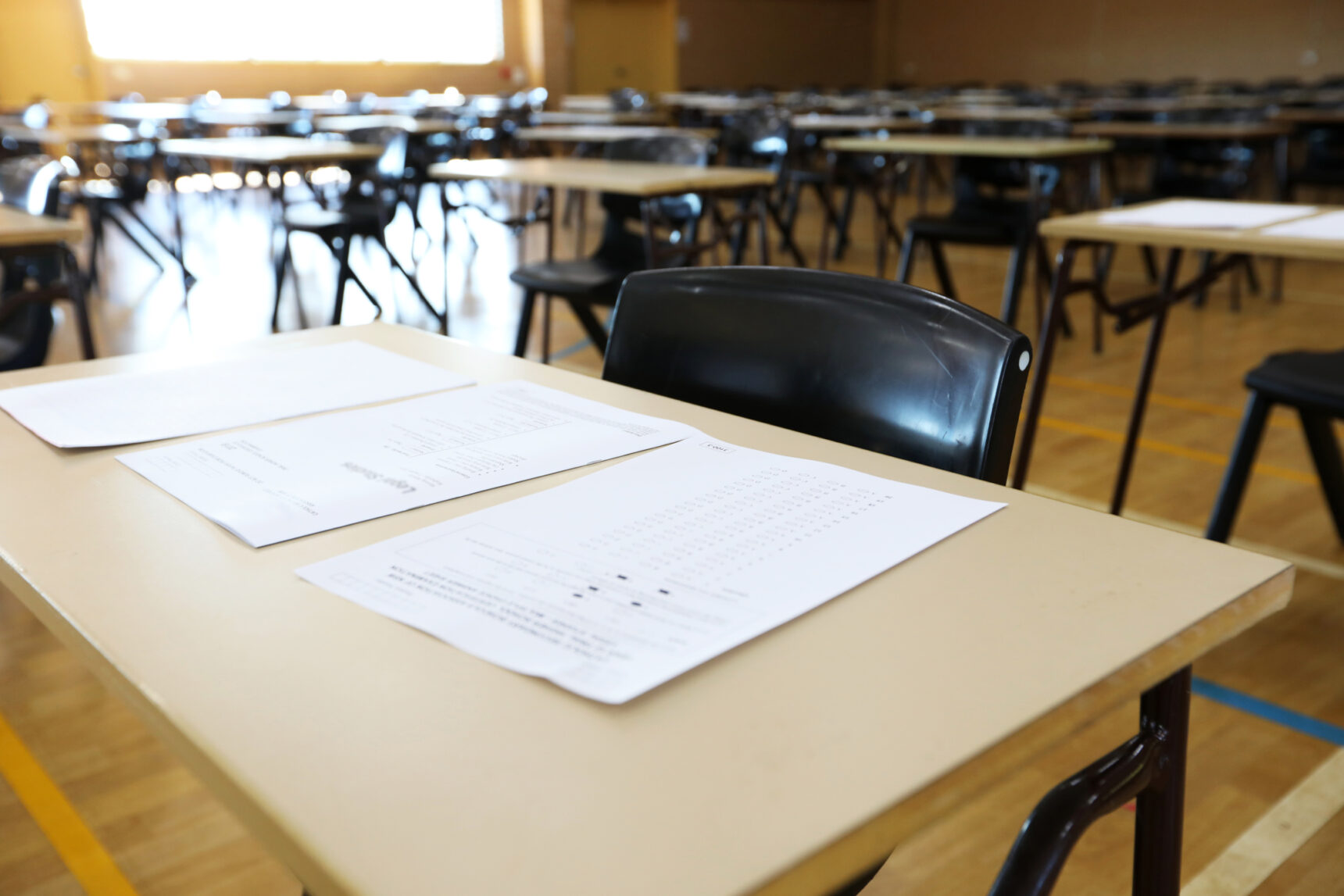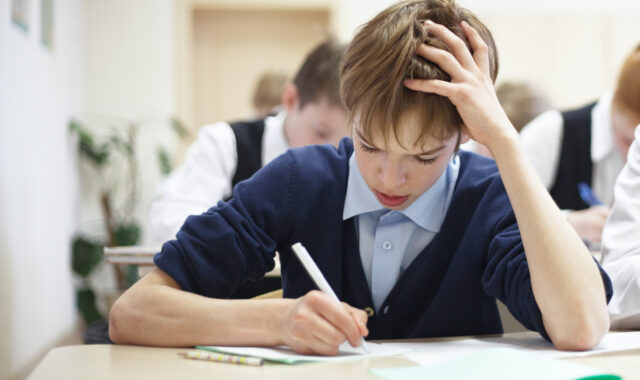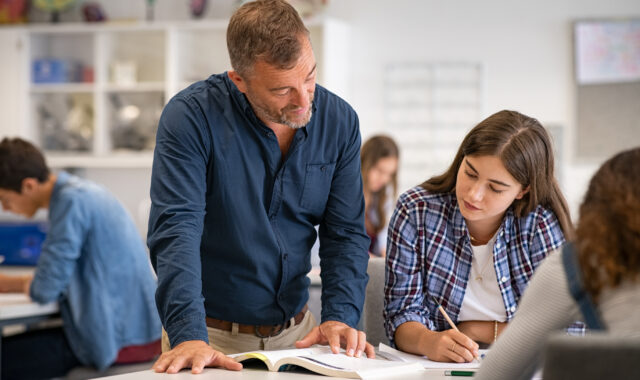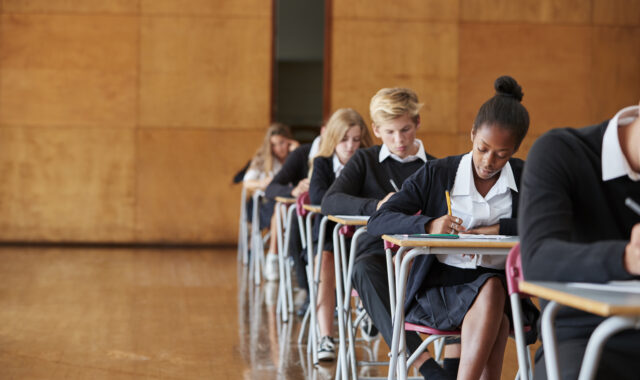Contents:
Mock exams can be a stressful time for students—and for parents, too. They often bring a mix of anticipation, nerves, and questions about how best to support your child.
While mocks don’t count toward final grades, they are an essential part of your child’s academic journey, helping them prepare for final GCSE and A Level exams and supporting university and college applications.
In this guide, we’ll cover everything you need to know about mock exams: what they are, when they happen, why they’re important, and how you can help set your child up for success.
What are mock exams?
Mock exams are practice exams designed to give students a realistic experience of the real thing. Unlike final GCSE and A Level exams, mocks don’t count towards final grades. Instead, they are a valuable tool for:
- Identifying strengths and weaknesses across different subjects
- Building confidence and familiarity with exam formats, question styles, and timing
- Supporting students to develop effective revision strategies ahead of the real exams
- Helping teachers determine predicted grades

What do mock exams look like?
Mocks are designed to replicate real exam conditions as closely as possible. This usually means:
- An exam hall setting: Desks and tables are laid out to mimic an official exam environment.
- Real exam papers: Students complete the same type of papers they will face in the actual exams. Often, these will be past papers from the most recent exam series that exam boards haven’t yet made public.
- Timed conditions: Each paper is strictly timed, helping students practise pacing and time management.
- Strict rules: Students follow the same rules as in final exams, such as no talking and only using approved materials.
By experiencing these conditions, students practice not only applying their knowledge but also exam skills such as handling pressure, managing time, and maintaining focus—all of which benefit them in the real exams.
When are mock exams?
Mock exams are scheduled at key points during the school year to help students and teachers gauge progress and identify areas that need extra focus. Exact timings vary from school to school, so it’s always best to check your child’s calendar.
When are GCSE mocks?
GCSE mock exams are usually held between November and February of Year 11. Some schools run their first set of mocks in late November or early December, giving students a practice run before Christmas, and then hold a second round in February or March, after students have had time to act on feedback and strengthen weaker areas.
Many schools also run mock exams for Year 10 students, usually at the end of the summer term. These early mocks help students get familiar with exam formats, develop good study habits, and identify areas where extra support may be needed before Year 11.

When are A Level mocks?
A Level mock exams typically take place between December and February of Year 13, depending on each school or college’s schedule.
Many schools also hold Year 12 mock exams, usually in the summer term. These often play an important role in helping teachers determine a student’s predicted grades, which are used for university applications.
Your child’s school or college will confirm the exact timetable, so it’s always best to check their calendar or contact teachers directly.
Are mock exams important?
Yes—mock exams are an essential part of your child’s academic journey. While they don’t count towards final GCSE and A Level grades, they provide valuable insight into a student’s progress and help both students and teachers plan the best path forward.
Mock exams are important because they:
- Identify strengths and weaknesses: Mocks highlight the areas where a student is excelling and the topics that need more attention. This allows for targeted revision before the real exams.
- Encourage effective revision habits: Preparing for mocks teaches students how to plan their revision, manage their time, and prioritise topics—skills that will benefit them during their final exam preparation.
- Build exam confidence and experience: Sitting a mock under timed, exam-like conditions helps students get used to the pressure and format of real exams, helping to reduce anxiety on the big day.
- Develop exam technique: Mocks help students practise answering questions effectively, structuring essays, showing their working out, and managing time.
- Inform teachers and guide support: Mock exam results help teachers tailor lessons and extra support, ensuring students focus on areas where they can make the most improvement.
- Help with predicted grades: Mock results often contribute to teachers’ predicted grades, which can be important for college or university applications.
For parents, it’s important to remember that mocks are a diagnostic and preparation tool, not a pass-or-fail test. Mock exam results help teachers provide targeted support and give students the chance to adjust study habits, refine revision strategies, and develop exam technique in time for their final exams.

How to support your child during their mocks
Mock exams can be a stressful time for students, but with the right support from parents, they can become an opportunity for growth and confidence-building.
Here’s how to help your child before, during, and after their mocks:
- Create a realistic revision plan: Help your child break down subjects into manageable chunks and set achievable daily or weekly goals. Encourage a mix of revision techniques, including flashcards, past papers, and active recall exercises.
- Provide a calm study environment: Minimise distractions and create a dedicated study space where your child can focus. Even small changes, like good lighting or a tidy desk, can improve concentration.
- Establish healthy routines: Ensure your child gets enough sleep, eats well, and takes regular breaks during study sessions.
- Help manage stress: Remind your child that mocks are a learning opportunity, not a final judgment. Encourage deep breaths, positive self-talk, and a sense of perspective. You could also share our article on managing exam anxiety to give them extra tips and support.
- Discuss results constructively: Focus on effort and progress rather than just marks. Our student article: How to reflect on your mock exam results offers tips on reviewing mock papers, making the most of teacher feedback, and creating an action plan for final exams.
- Celebrate: Recognise your child’s hard work, perseverance, and growth—confidence and motivation are just as important as exam results.
Mock exams are an important step in your child’s learning journey. While they can feel stressful, they provide a valuable opportunity to build confidence, develop effective study habits, practise exam skills, and identify areas for improvement.
Offering the right support—through providing a stress-free study environment, gentle encouragement, and constructive feedback—can make a real difference in helping your child approach their GCSE or A Level mocks with calm and confidence.
Looking for extra guidance with mock exam preparation?
Our student guide, How to Ace Your GCSE or A Level Mock Exams, offers practical strategies and tips your child can use to prepare confidently and effectively.
FAQs
Do mock exams matter?
Yes. While mock exams don’t count toward final grades, they’re an important part of final exam preparation. Mocks help students identify strengths and weaknesses, build confidence under exam conditions, and give teachers insight into progress and predicted grades.
When are Year 10 mocks?
Most schools hold Year 10 mock exams in the summer term, usually between May and July. Exact dates vary, so it’s best to check with your child’s school.
Are Year 10 mocks important?
Yes. While they don’t affect final GCSE grades, Year 10 mocks give students their first experience of exam conditions and help them to develop effective study habits and exam technique. They also allow teachers to assess progress early and identify areas for improvement before Year 11.
Is it okay to fail a mock exam?
Yes. Mock exams are for practice and don’t count toward your child’s final grades. They provide a safe opportunity to identify weaknesses, learn from mistakes, and improve before the real exams. However, because mocks help inform predicted grades, it’s still important that your child prepares thoroughly and does their best.
Do mock exams count towards final grades?
No. Mock exams do not contribute to final GCSE or A Level grades. They are designed as a practice tool to help students experience exam conditions, identify areas for improvement, and guide revision before the real exams.
What should my child bring to mock exams?
Students should bring everything they need to complete the exam. This usually includes:
- Pens, pencils, and a ruler
- Calculator (if allowed)
- Rubbers, highlighters, and any other permitted stationery
Schools will provide a full list of what is allowed, so it’s essential to check the exam instructions in advance.
What happens if my child is unwell during mocks?
If your child is unwell, let the school know as soon as possible. The school may be able to arrange for them to sit the exam at another time. Mocks help to inform predicted grades, so missing a mock could mean teachers rely more on classwork, previous assessments, or other evidence instead. It’s always best to discuss the situation with the school so they can advise on the best approach.
How are mock exams marked and graded?
Mock exams are usually marked by your child’s teachers using the same mark schemes as the real GCSE or A Level exams. Grades are often based on current grade boundaries from exam boards, though schools may adjust them slightly. These results give teachers and students a realistic idea of current performance and highlight areas to improve before the final exams.
Can mock exam results predict final grades?
Mock exam results can give a useful indication of likely performance, but they are not a guarantee of final grades. They help teachers estimate predicted grades for college or university applications and highlight areas where students may need to focus their revision before the real exams.
How should my child revise for mocks?
Effective revision for mocks involves planning ahead, breaking subjects into manageable topics, and practising past papers under timed conditions. Encourage a mix of active learning techniques, such as summarising notes, testing recall, and explaining concepts aloud. Regular breaks, good sleep, and healthy routines are also important for maintaining focus and retention.
Do teachers give feedback after mocks?
Yes. After mock exams, teachers usually provide feedback on performance, highlighting strengths and areas for improvement. This feedback helps students focus their revision, refine exam technique, and improve confidence ahead of the real exams.








Comments